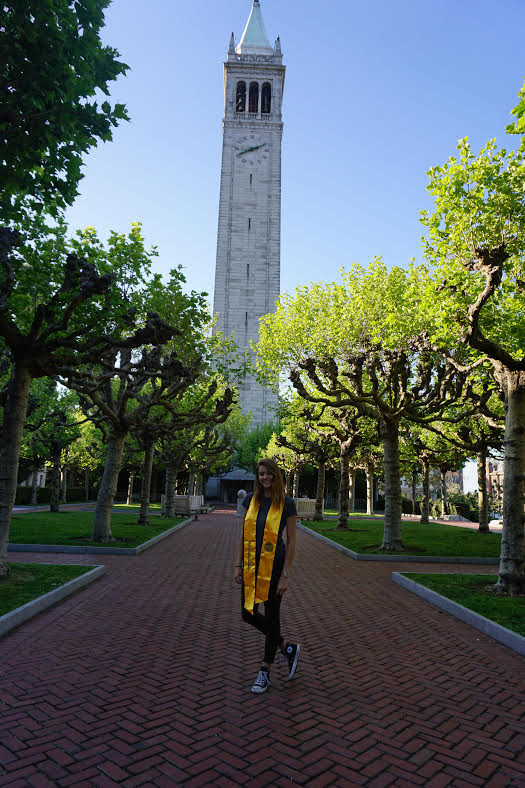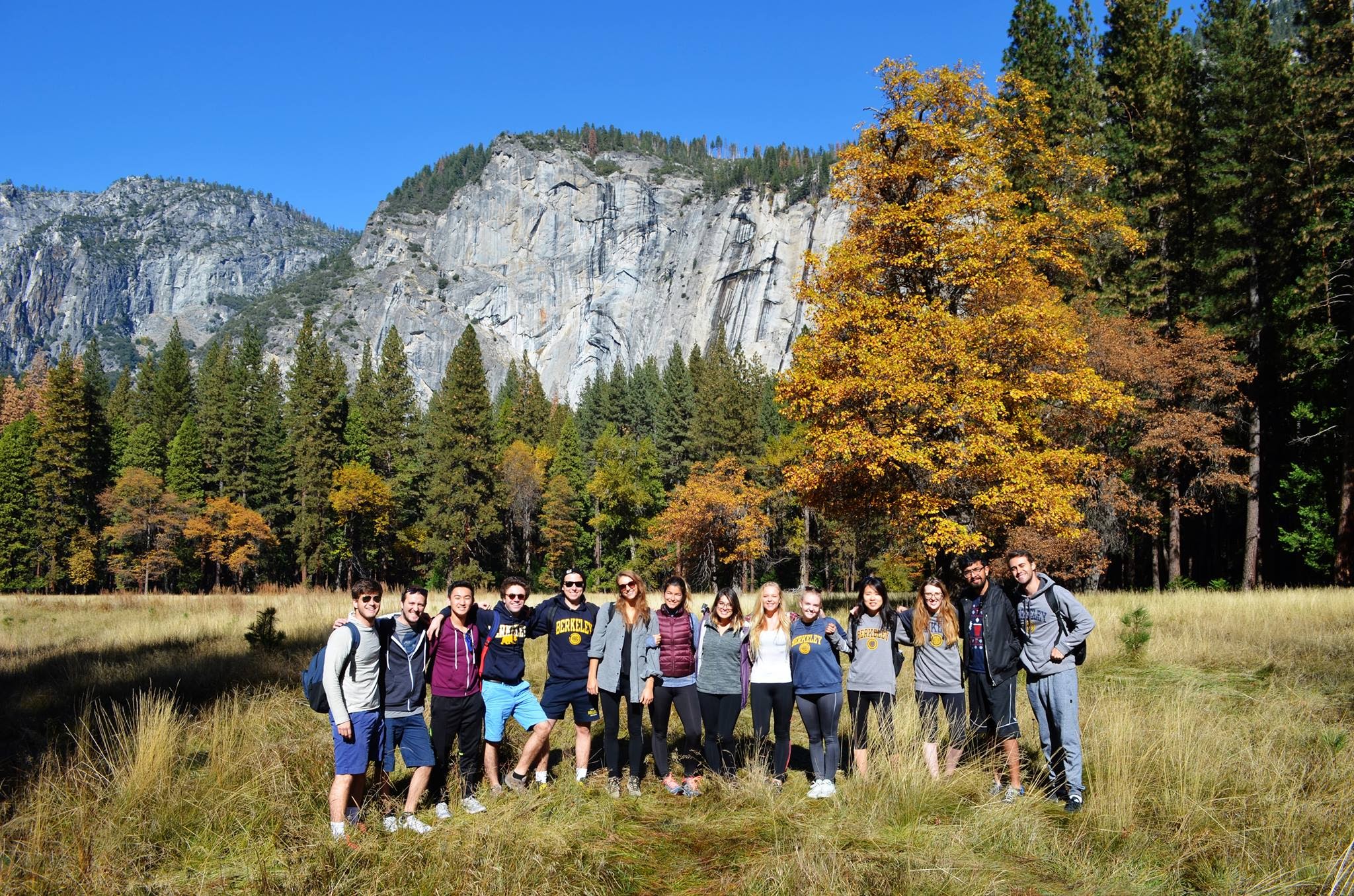LSE is committed to producing global citizens and providing students with opportunities to enhance their degrees. This is why we are now offering students the opportunity to spend a full academic year studying in the College of Letters and Science at Berkeley.
Read about Marta's year abroad in California, and see whether this opportunity might be for you too.

Why did you apply to the LSE-Berkeley Undergraduate Student Exchange?
One of the most appealing aspects of the LSE-Berkeley Exchange was the breadth and diversity of courses I would have never had a chance to take, otherwise. Not only, is the UCB anthropology department known for its excellence but I knew that this opportunity would allow me to explore beyond the bounds of my course.
American college life seemed as something quite obviously different - from the social side to extracurricular initiatives, sports as well as academia. I wanted to gain a first hand-experience of it all.
Finally, San Francisco Bay Area is absolutely mesmerising. The Bay as well as California as a whole have so much to offer.
What was the best part of your year abroad/What were the best moments of your year abroad?
That’s a tough one. Both semesters were quite different, but similarly enjoyable.
From the academic point of view, one of the best parts was being lectured by Professor Nancy Scheper-Hughes, a prominent figure in medical anthropology as well as Robert Reich, a renowned political figure, who, among other roles, served as the Secretary of Labor under President Bill Clinton.
Being a part of International House has definitely granted irreplaceable relationships to hold onto. One of the greatest sights, if not moments, was the Golden Gate Bridge - I-House is located on top of a hill which allows to catch a glimpse of it, when it’s not a foggy day.
One of the most memorable trips was one to Yosemite with a group of students from I-House. We all stayed in a cabin and set off for one of the most breath taking hiking trips I have ever had.
Spending thanksgiving in Lake Tahoe with one of my friends and her family was also, most surely, something I don’t get to do every year.
How will you use what you learned there?
I already am and will surely continue to.
When it comes to academia - having been able to explore social sciences further; including medical anthropology, public policy, ethnic studies, offered an entirely different perspective I can now confidently present in my anthropology classes at LSE and develop further.
The experience of the American college life and culture provided me with knowledge and familiarity that I am convinced will be a valuable asset in many cases throughout my university experience and beyond. It already is.
How was life at Berkeley compared to the experience you have had in London?
It was different. That’s for sure. LSE has around 5,000 undergraduate students, whilst Berkeley has approximately 30,000… This in itself changes the student experience. UCB campus, as you can probably imagine, is considerably bigger - it was actually hard to get to classes on time if they were located at opposite ends of campus…
LSE has fairly a lot to offer when it comes to student life, its clubs, societies and AU - yet at UCB you will probably find everything you can imagine and more than that - from the sports clubs (including Quidditch), music and dance societies, art-focused, cultural, professional, political societies to, finally, the well-known Greek life. Despite the size and amount of initiatives, UCB is entirely inclusive of all.
Apart from that there are many organised initiatives enabling students to get involved in research opportunities (e.g. URAP - The Undergraduate Research Apprentice Program, is the one I got involved in). I had a chance to work on research and research evaluation on one-to-one basis with a UCB sociology professor.
Life at Berkeley also included slightly more contact hours for each course and different semester/term structure. Whilst, the semester lasts 12 weeks, for majority of my courses I had two 1.5h long lectures in a week and a tutorial. Due to the fact that UCB adopts continuous assessment, I did not necessarily spend extended period of time cramming for my finals. During dead week (one week after classes finish dedicated to revising) I revised a bit, but the most of my course work has been done in the 12 weeks prior. Each course I took was also only one semester-long which meant that once I’ve passed my December finals I was worry and assignment free, ready to go off on my 4-week travels.
What are your top tips for potential applicants?
For many Berkeley may possibly sound appealing just because it’s Berkeley, just because it’s America and California, just because it’s sunny [it’s not actually all THAT sunny] and Golden Gate Bridge is somewhere around there, too. Those are all valid reasons, but not quite good enough. It is worth to make sure you know what it really is about, what Berkeley has to offer (and it has a lot to offer), why you are genuinely interested to go there. If it’s just to develop your academic skills, engage in a constructive discussion or try out new sports clubs - well, you can still do so at LSE. Try to dig deeper - look at particular courses, faculty, extracurriculars and many other initiatives (e.g. decals - student run courses). Once you know your why’s and how’s - communicate it clearly and confidently in your application.
Is there anything else that you would like to share with others?
I had the opportunity to travel to quite a few places throughout the ten months I was there. Majority of it all was possible on a fairly low budget with students I met there - at I-House, UCB and the Bay.
